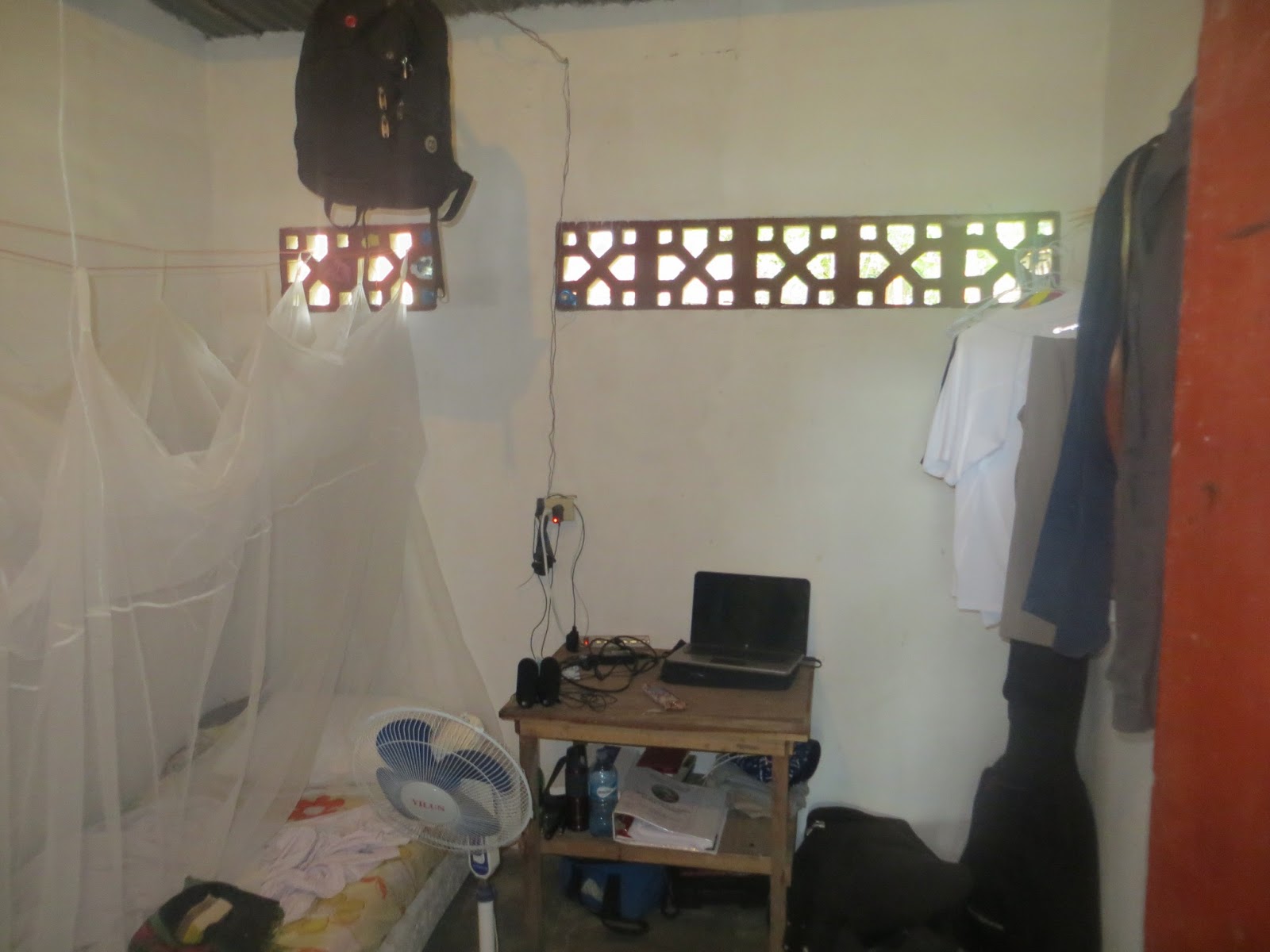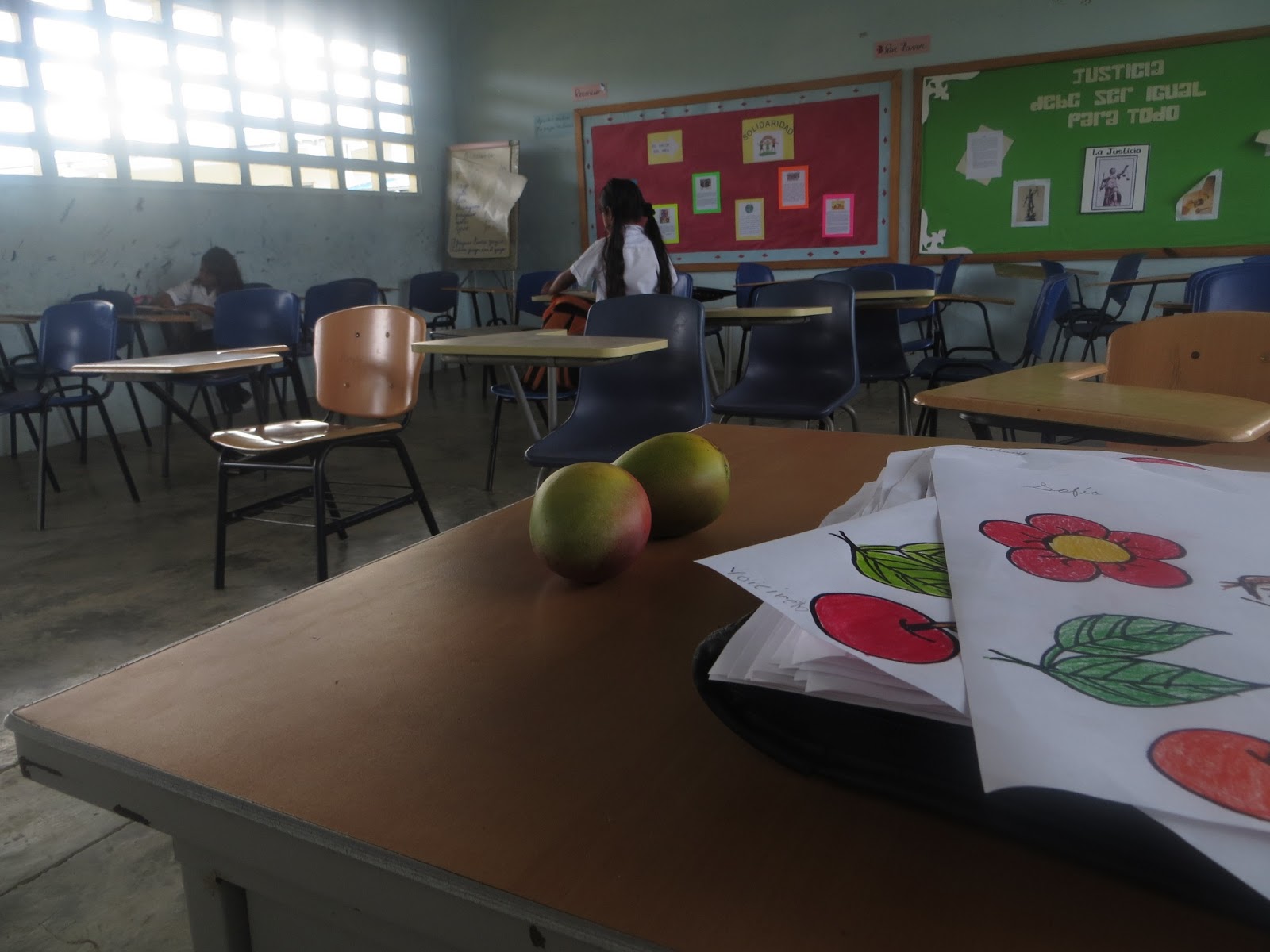Wrapping up another month in Panamá, it is difficult to conceptualize the time I have spent here. I have been in site one month, and in Panama for more than three. It's like paddling out to sea, not really noticing too much progress, but the shores of February are fading in the distance.
So for the the last month, i have been spending time observing teachers in the primary school. It's a frustrating experience because I would like to be more involved, but first i have a lot to learn about the Panamanian school system, assess the needs of the school/community, and perhaps most importantly build camaraderie with the teachers before I start planning and get my hands dirty. That said, there are some tough problems/realities in the Panamanian classroom, which my compañera Katy lays out wonderfully in her
blog.
So moving on from that, I'd like to recap my month!
I am wrapping up my week of "vacation" (no school for the niños, as first trimester has just ended, but I was pretty busy) before I head off to the depths of the Darién to visit some of meet some of my new Peace Corps brethren of the East, and do manstuff in the jungle...
some random things i have been doing:
-dodging beetles and swatting bats (killed my first little marcielago last night, I didn't want to because I thought he would be a great defense against mosquitos, but he was out of control and flying way too close to my head while I was trying to help my host-sister with her English homework. She laughed at my indecision (and fear), until my blue jeans knocked him out cold. RIP. There are enough creatures that are trying to suck my blood ). Rainy season has arrived to Panama Esté, and with the lights on in my open bedroom, I am a prime target for rainforest bicho (bug) drones.
-"Thriller" dance with 3rd greaters (we will see if it can be pulled off for english week)

-Gira Médica with US army- I was fortunate to be able to help out on the final day of a medical trip the U.S. Army did in the neighboring town, Platanilla. About 30 army members, a diverse group of medics, reserves, active officers, and otherwise, are doing medical trips to many communities out here in eastern Panamá. Last week they saw hundreds of patients, dividing into stations for Optemetry, Pediatrics, Internal Medicine, Vaccinations, etc. Mi compañeras Aja, Margaret, and Beth helped out translating as well. It was a super neat experience to share with another U.S. organization, especially the military. It was a cool experience and opportunity for sharing, as many of them (some more honestly curious and interested than others) wanted to know what we were up to and what the always ambiguous Peace Corps was all about. It was especially cool to here one of the officers tell us that he is encouraging his son to look into Peace Corps rather than join the military like his older brother. After talking to some of the soldiers and sharing experiences (especially from guys who had served in Iraq, where sometimes the duration of their deployment would be spent within the confines of a military base), I really appreciate the freedom we are able to enjoy as Peace Corps volunteers (and especially in Panamá). One of the most important aspects of this job is that we live with the native people we are serving; integration is integral to our success. I am definitely looking forward to translating for other medical missions.
**I just found out that the Southern Command will be in Tortí next week, so the kiddies get another week of no school (ay la vida), and unfortunately I will be out of town until next wednesday due to regional meeting in the city.

-Trying to be a cocinero.... So I have been cooking a little bit in the restaurant kitchen, in order to diversify my diet, get some veggies in my system, and share some grub/prove myself to my Panafamily. Guacamole was quite the hit, and it was funny because they had never heard of it and wanted to know what it meant in Spanish (ya es en Español!). I also made homemade tortilla chips (which almost got ruined because Aunt Jackie thought I was making ohaldres, their delicious fried bread. Their tortillas are little fried corn tortillas, nothing like Mexican tortillas). Anyway, the guac was a huge hit and it was hilarious watching my tipsy host-uncle stumble over the pronunciation. Last week I got really adventurous and threw some fresh mangos in from the mango tree, fresh aguacate, freshly picked limes from the lime tree, etc., etc. heavenly goodness. Then, last weekend I decided to make some fat, juicy American cheesburgers for the fam. (with the mango guac), and they loved it! This is also good training for when I open up that brewery/restaurant somewhere in Latin America. So many amazing natural ingredients (mmm mango-pinapple wheat beer I can already taste it).

-Hanging out with Kuna Indigenous: The last few Saturdays I went to Wacuco to visit Aristoteles and Claudio. Aristoteles teaches math and Claudio English in pre-media (7-9th grade). They are both of the Kuna Yala indigenous group, which is the autonomous comarca up north along the Caribbean Sea (and the hundreds of islands around the coast). Aristoteles' dad was a diputado of Kuna Yala back in the day, which is equivalent to a U.S. senator. Claudio received a scholarship to study English in Ukraine. They are both badasses. It is interesting hanging out with the Kuna people. They have a very deep connection to the land and are totally against deforestation by means of logging or cattle grazing. There is some ill-feelings toward the latino population because there were land conflicts when the
interiores migrated east, and the Kuna percieve them as intruders who moved out here to destroy more forests after they depleted nearly 90 per cent of the rainforest that existed in the Azuero Peninsula, where many migrated from. I lived a ten minute bus ride down the rode from another Kuna comarca, the Kuna Madugandi. These Kuna have more tension over land rights because in reality their lands were taken from them, and many were pushed off their land t make way for the hydroelectric damn at Lago Bayano. That said, there is no violent conflict, and it's mostly just a cultural separation. The Kuna Yala are a little more open minded because there is a booming tourist industry up north in the islands of San Blas, and many travel often to Panama City to sell art and jewelry. The Madugandi are more communal and don't venture out much.


Saturday, I went to visit Aristoteles to practice English with him and pasear. His mom made us fish and patacones, we watched American 80s music videos on a dvd he has to practice, then we headed to Ipedi to visit the Kuna Madugandi. There, we ran into a bunch o Kuna men campaigning for a man name Aiban, who is running for diputada of Kuna Yala. It was really cool talking to the Kuna men about politics. A Kuna teacher named Claviano shared a few beverages with Aristotle and me, and we had some great chats about history, politics, and education from the persepctive of Kuna culture. He told me that the mindset of many Kuna is changing and becoming more open. A few years ago, a North American married a Kuna Yala woman and they live happily up in the comarce. The white man speaks perfect Kuna and is accepted as one of their own. This is a sign of some progression, because the Kuna people usually do not mingle with anyone outside of the Kuna population, but things are changing. I made some great connections for when I get a chance to go visit the islands of San Blas, and Claviano and Aiban said they would take me in their motorboats to some of the pristine, tourist-free islands! I capped off the day by bathing with a group of Kuna Men in the Ipedi river. Some were bare-ass naked and invited me to do the same, but children were present, so I kept my skivvies on to cover the remaining whiteness. They got a kick out of it, and joked that I was more Kuna than Aristoteles (and not afraid of crocodiles) because he didn't get in. Also, the Kuna language is fascinating and I am going to try to learn it! Newedi!
 |
| The Respect for Diversity also is Peace |
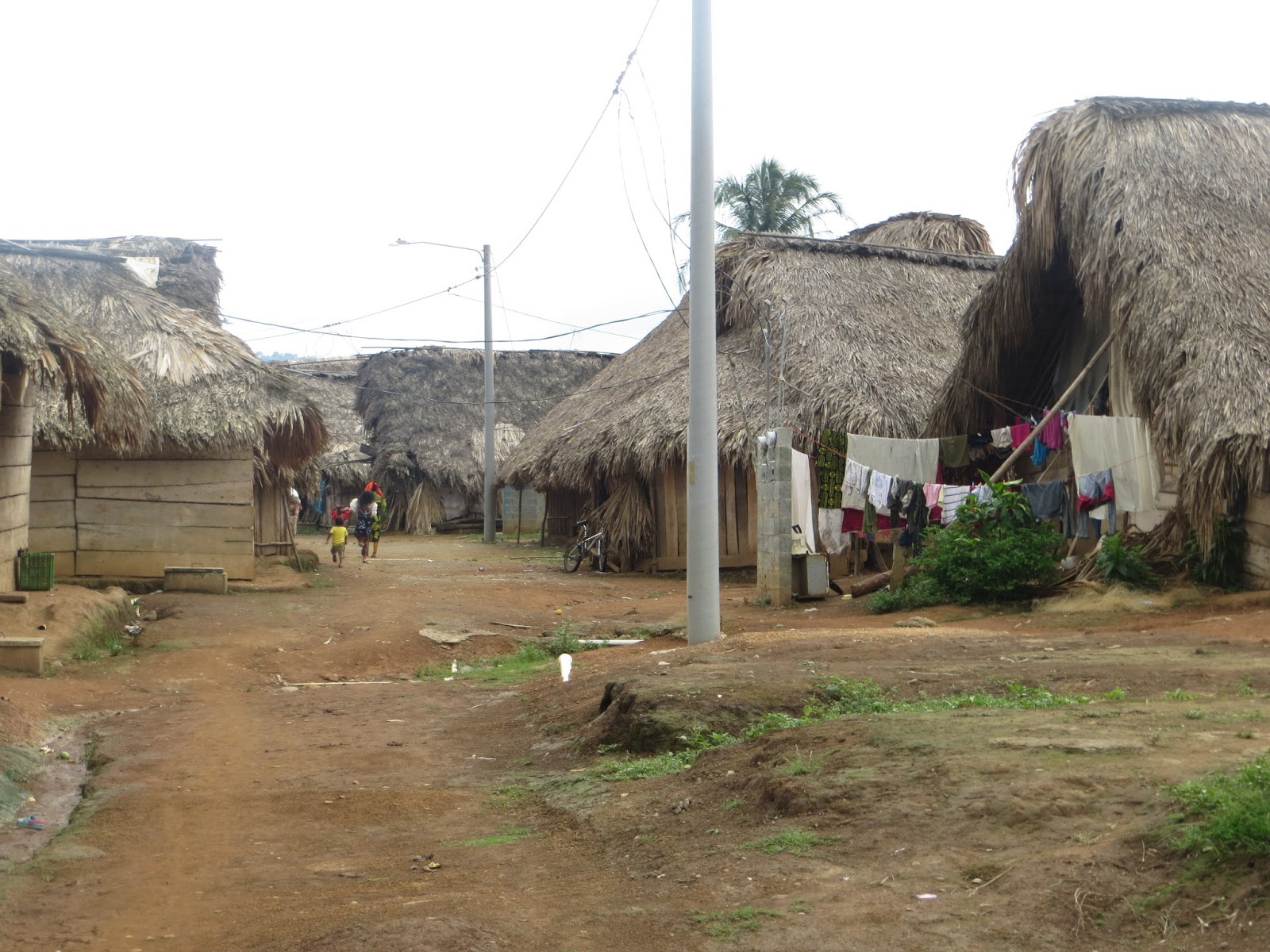

-This past Sunday, my family hosted a matanza for political campaign. They don't necessarily support the dude, but they have a restaurant and a big lot out front, plus they enjoy matanzas, so they agreed to host. The campaign people brought over 2 dead cows, and my family and others spend hours Saturady night and Sunday morning cutting, chopping, seasoning, smoking, and boiling la vaka into gloriousness. Spent the beautiful sunny Sunday eating smoked beef and sharing a few balboas with my host tío and primo. It was a solid day. I am excited for family matanzas, where the men work all afternoon (usually harvesting corn or rice) and then eat, drink, and dance merrily through the eve.


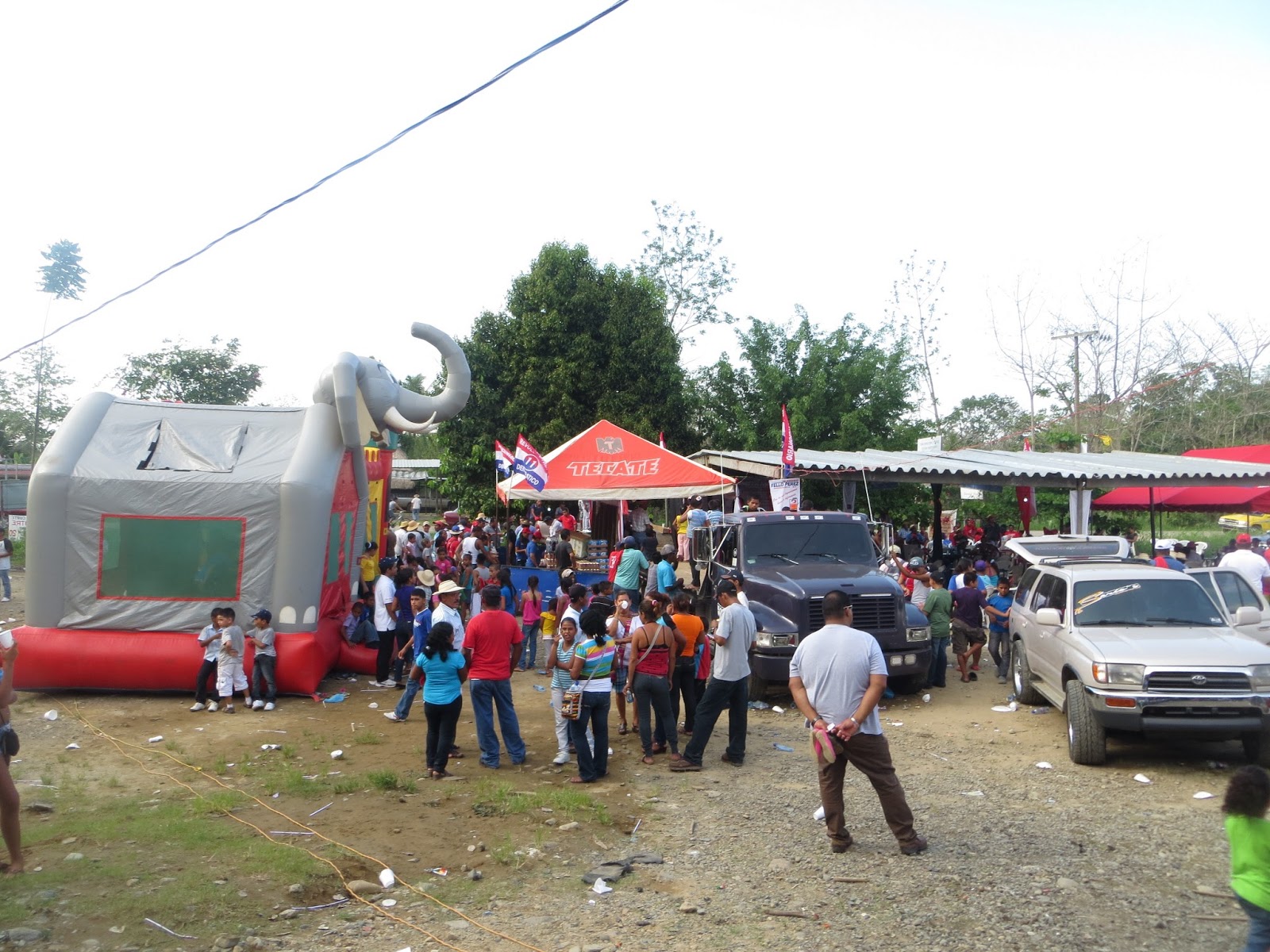
Dude brought a moonbounce, how can he lose?
Earlier this week, I went to Chepo to help with the regional Spelling Be, and the following day for the Zárate Concurso, a regional cultural competition, and I got to spend both days with mis compañeras, fellow east siders and rubias, Rachel and Katy! I'll put some vids and pics up from the cultural event in my next post, it was really cool!
Finally, my new animal pals:
 |
| Colibrí |
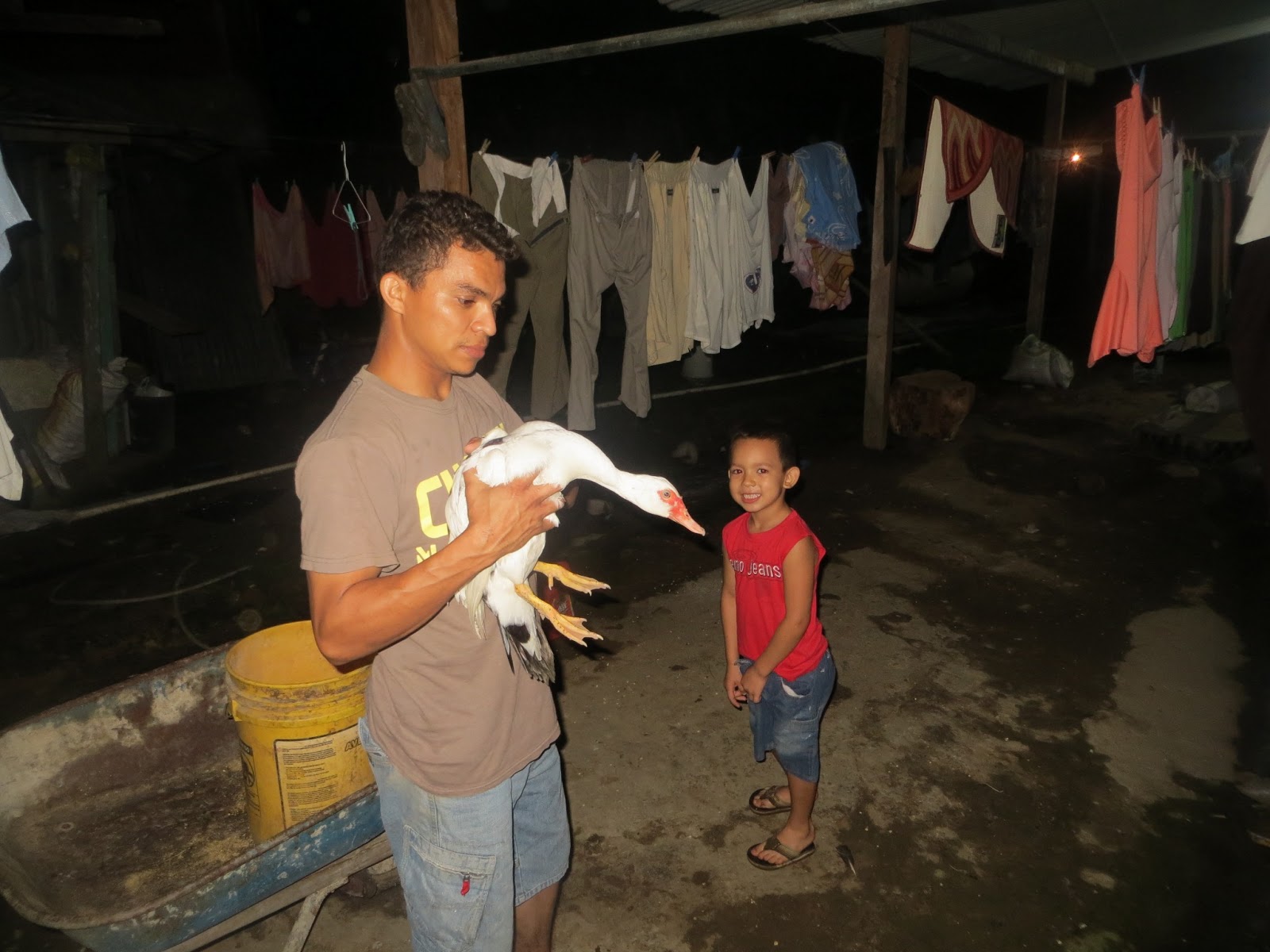 |
| Christian, his pops, and a pato that ran waddled into my room one night |
 |
| Mono Titi! |
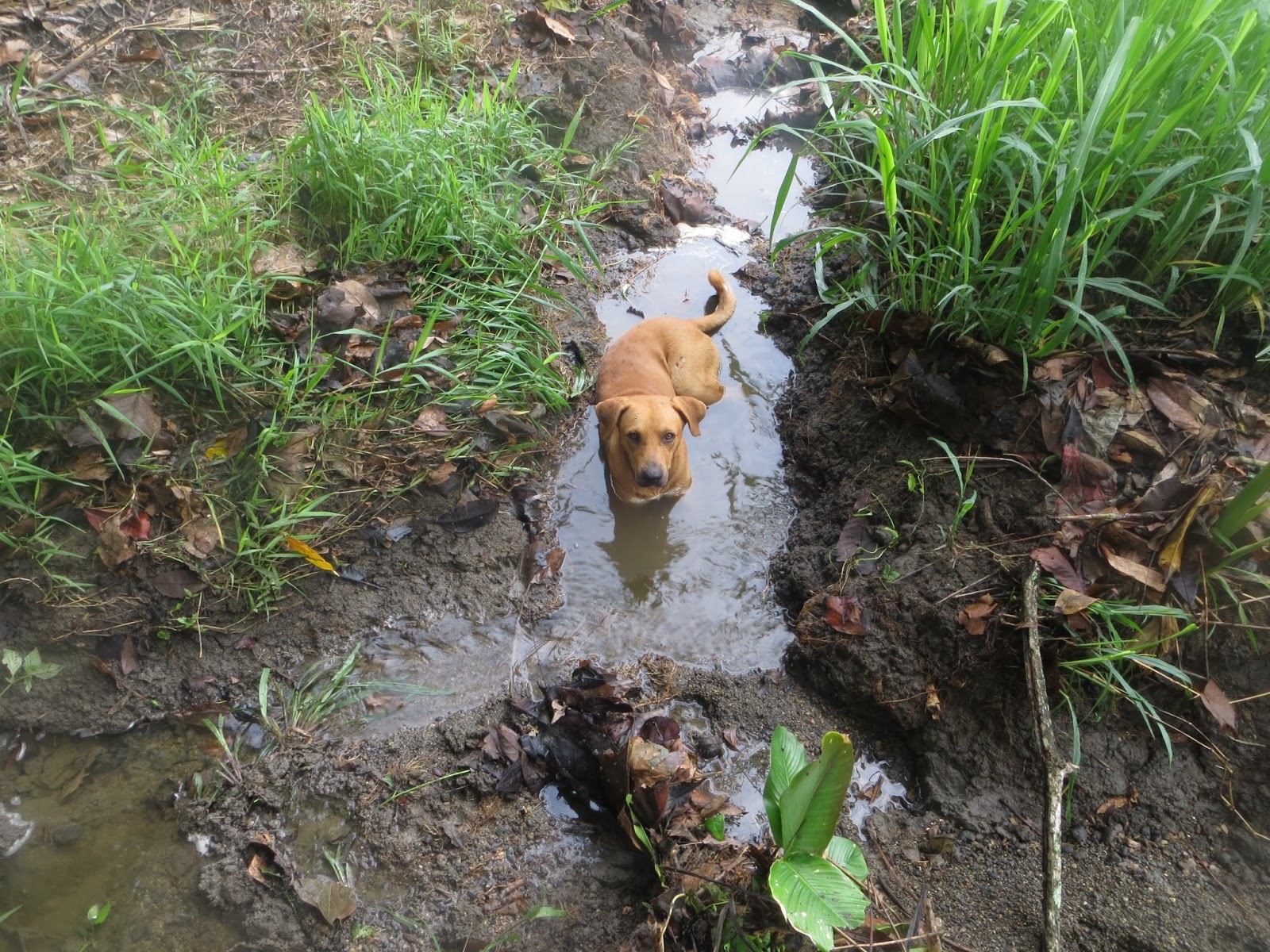 |
| Balto, my trusty jungle sidekick |
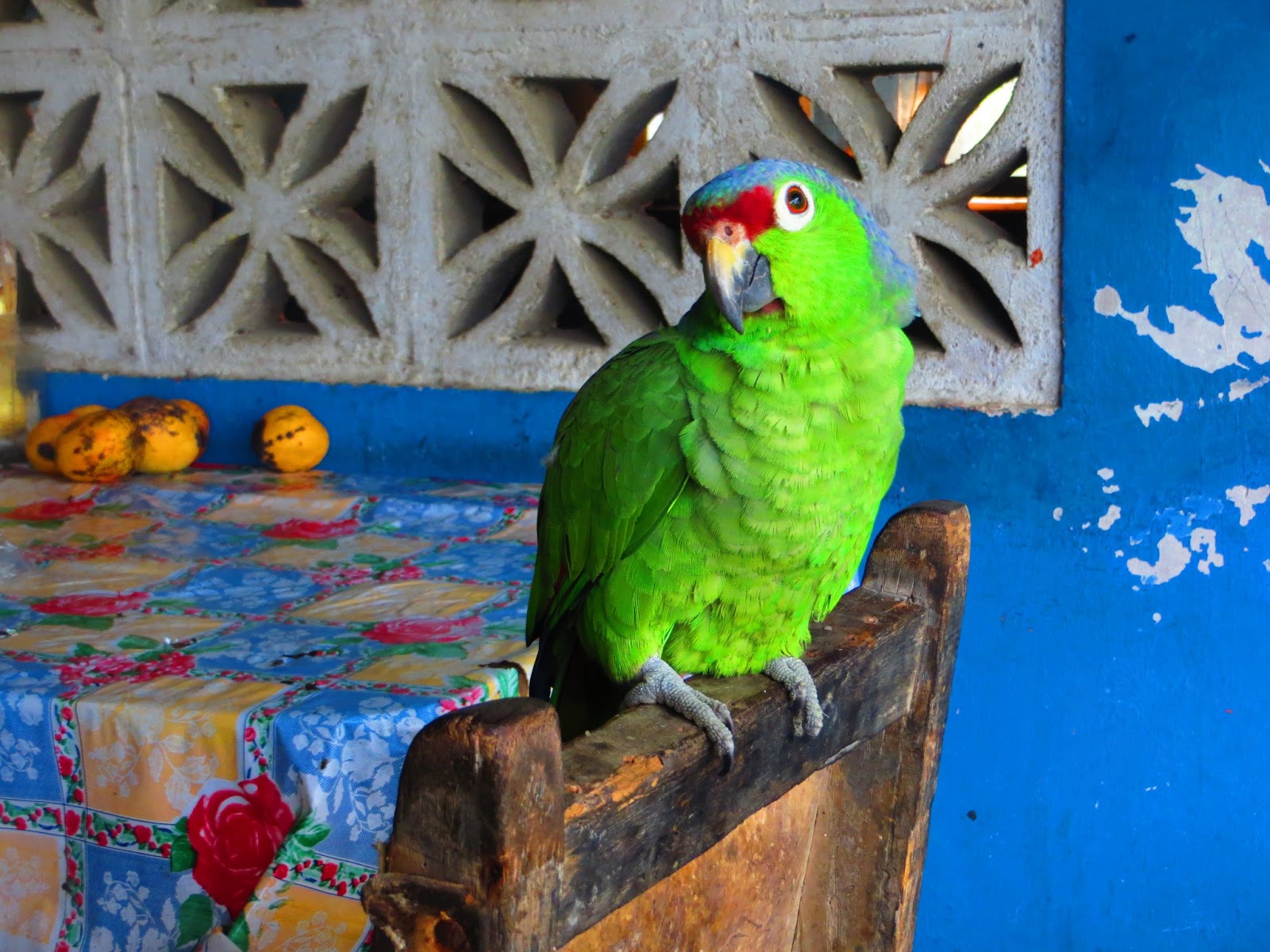 |
| Paco, moody loro |
 |
| late night tree frog visitor |
I also saw a little crocodile, (or alligator, or caiman, ah i dunno) during a morning jog by a creek. Panamanians referred to the lizard as a lagarto babillo. I'll snap a pick next time.
Paz y abrazos!
p.s. if I don't blog in the next coupe weeks it's because I decided to don a loin-cloth and live with the Emberá deep in the Darien rainforest.



























